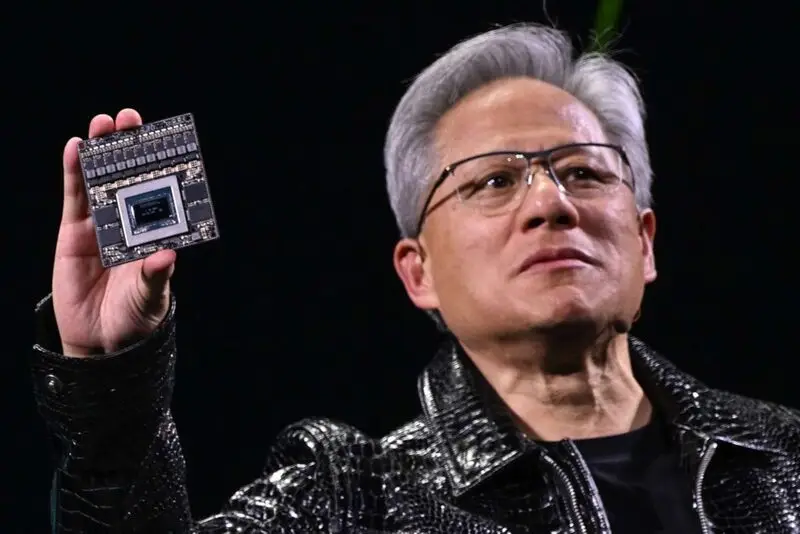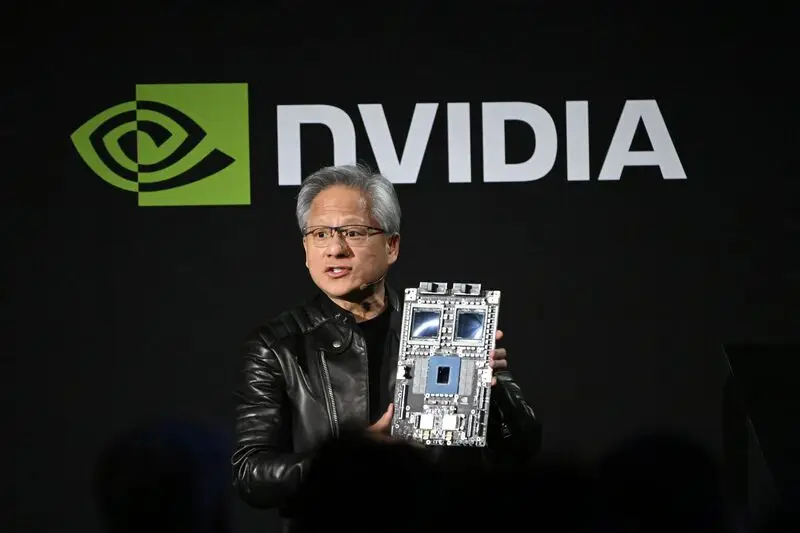One of the most prominent tech companies in the world, Nvidia (NVDA) CEO Jensen Huang, has met with Chinese trade officials in Beijing this week. Indeed, the meeting took place a day after the company stated it would incur a $5.5 billion hit amid the ongoing trade war between China and the United States.
The AI chipmaker has been caught in the middle of the ongoing tariff war that has escalated rapidly. It had previously announced a major $500 billion investment move to shift its manufacturing to the US. Now, it is talking with Chinese officials as geopolitical tensions continue to rise.
JUST IN: 🇨🇳 Nvidia CEO Jensen Huang arrives in Beijing for talks with Chinese officials amid US-China trade war. pic.twitter.com/PRenxIBQGF
— Watcher.Guru (@WatcherGuru) April 17, 2025
Also Read: U.S. Blocks Nvidia Chips to China—What Happens to AI Stocks?
Nvidia CEO Meets With China as US Trade War Tensions Continue to Grow
The global economy is caught in a budding trade war between both the United States and China, and some of the most prominent companies in the world are caught in the middle. The US announced that tariffs on the country could reach heights of 245%, greatly affecting a host of industries.
One company that has been increasingly affected is Nvidia, whose CEO officially met with Chinese trade officials this week. Specifically, Jensen Huang was set to meet with the China Council for the Promotion of International Trade.

Also Read: Nvidia Stock: Wall Street Is Bullish or Bearish on NVDA? See the Target
According to state media reports, Huang did not mince words about the ongoing disputes. He stated that US controls on AI chip sales would have a “significant impact” on its business. Moreover, it reiterated Nvidia’s claim to “continue to spare no effort” to make products that “unswervingly serve the Chinese market.”
Meeting with Chinese trade official Ren Hongbin, Huang noted China’s importance. “We hope to continue to cooperate with China,” he said, according to a Reuters report. In response, Vice Premier He Lifeng encouraged even more US companies to grow investment and exposure in the market.
The meeting comes after a volatile turn for its US relations. The company announced its intent to produce American-made supercomputers. That was a key part of a $500 billion AI infrastructure plan in the US. Yet, just a day later, the US halted sales of its chips to China. Specifically, they noted the requirement for a new license to sell to the country.






